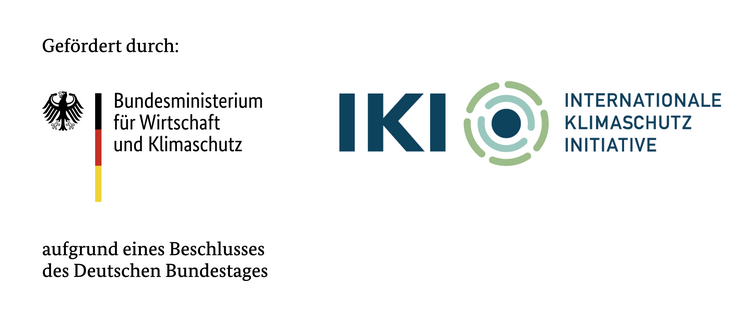General information about PRO-NDC-ACT
General information about PRO-NDC-ACT
Project subject
The negative consequences of the ongoing global crises of this time - climate change and loss of biodiversity - are also becoming increasingly apparent in Tanzania. In large parts of the East African country environmental conditions are still favorable for productive agriculture and there are still relatively large areas of intact ecosystems, including forests, savannahs, wetlands, lakes and rivers, Even two of the world's 36 biodiversity hotspots are found in Tanzania (Eastern Afromontane & Coastal Forests of Eastern Africa). However, land use intensity and land consumption are rapidly increasing in both urban and rural areas, with particularly negative effects on forest ecosystems. Between 2001 and 2022 Tanzania lost 30.200 km² (11 %) of its tree cover. At the same time, as a result of climate change, the region is experiencing a reduction in water availability (rising temperatures accompanied by little change in annual rainfall), reduced predictability of seasonal changes between rainy and dry seasons, and an increasing incidence of extreme weather events (droughts, heavy rains, storms). All of this leads to ecosystem degradation, loss of biodiversity, and a decline in essential ecosystem services. As a consequence, significant impacts on agricultural production as well as on other land use activities to secure livelihoods in the affected regions are to be expected.
The project PRO-NDC-ACT ("Promotion of Participatory Processes for the Implementation of NDC through Nature-Based Solutions in Urban, Rural and Coastal Landscapes of Tanzania") of the Chair of Ecological Economics aims at developing and implementing nature-based solutions with the participation of the affected village communities to address the problems mentioned above. In concrete terms, it is planned to reforest deforested areas and to develop them in an ecologically sustainable manner, taking into account the utilization needs of the local population. In this way, greenhouse gas emissions are to be reduced, the risks resulting from climate change minimized and ecosystem services promoted.
Project team
Bernd Siebenhüner and Maximilian Petzold from the Chair of Ecological Economics at the University of Oldenburg are responsible for the coordination and technical management of the project. The Tanzanian project partners of the non-governmental organization Climate Action Network Tanzania lead the implementation on the ground. The participation of the local communities affected by PRO-NDC-ACT is facilitated by elected local project implementation committees, who are closely involved in the planning and implementation of project activities. In addition, Prof. Dr. Pius Yanda from the University of Dar es Salaam and Prof. Dr. Michael Kleyer from the Landscape Ecology Group of the University (unitl 2023, since then emeritus) of Oldenburg support the project with their expertise.
Funding
The project is funded by the International Climate Initiative of the German Federal Government to the amount of around 520,000 Euros.

Independent Complaint Mechanism (IKI ICM)
If you suffer (potential) negative social and/or environmental consequences from this project, or if you wish to report the improper use of funds you can voice your complaints and seek redress through the independent complaint mechanism (IKI ICM). The complaints mechanism is based at Zukunft - Umwelt - Gesellschaft (ZUG) gGmbH, the Federal Goverment's project management agency for the IKI funding programme. Complaints can be filed by filling out a complaint form and sending it to the complaints mechanism by post or e-mail.

